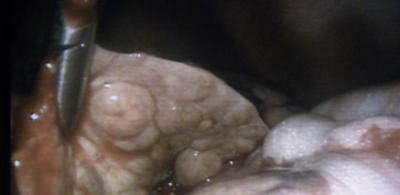Research Advances Understanding of Canine Liver Disease
Research by the Dick Vet’s Medicine Team, along with colleagues at the Royal Veterinary College, has offered insight into why dogs may suffer from neurological abnormalities as a common complication from liver disease.

Liver disease is an important cause of ill-health in dogs. One of the most common complications of liver disease in dogs is neurological abnormalities, such as lethargy, altered gait, confusion and stupor. This syndrome is often termed hepatic encephalopathy (HE) and the presence of this complication in dogs with liver disease can have a significant impact on their quality of life.
The reason(s) why dogs with liver disease develop neurological abnormalities are poorly understood and this means that it has been difficult to develop novel therapeutic approaches. To address this problem, small animal medicine clinicians at the Dick Vet, together with colleagues at the Royal Veterinary College, examined a range of clinical and biochemical abnormalities, which have been linked to the development of HE, in a large cohort of dogs with liver disease.
The teams importantly found that both ammonia and inflammation were predictive of the development of HE in dogs with liver disease. They also found that other factors which have been anecdotally linked to the development of HE were not associated with the development of neurological abnormalities in dogs with liver disease. This work provides an evidence base on which to develop novel treatment approaches which will hopefully reduce the incidence and severity of HE in dogs with liver diseases.
A recently published follow up study undertaken in collaboration with colleagues at Dick White Referrals has identified that interleukin-6 (IL-6) concentrations are increased in dogs with a cPSS. Interleukin-6 has been shown to be an important mediator of neurological disturbances in humans with liver disease and researchers are currently investigating whether it also causes similar complications in dogs with liver disorders.
Links to both papers are available below.
These studies were supported by Petsavers.


